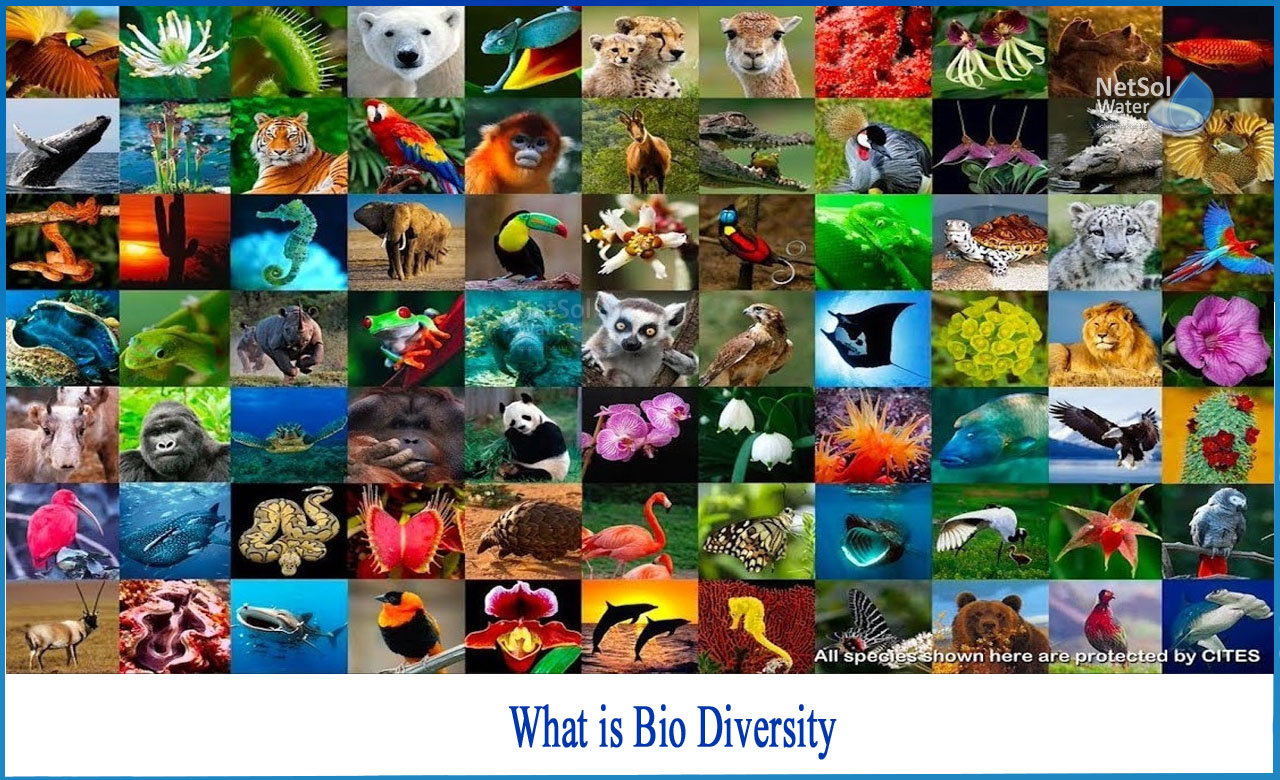What is bio diversity?
Biodiversity is the diversity of life on Earth at all levels, from DNA to ecosystems, and includes ecological, evolutionary, and cultural processes that keep life going. Biodiversity includes all living things, including germs, fungi, humans and invertebrates, and includes rare, threatened, or endangered species.
What is included in bio diversity?
The Centre for Biodiversity and Conservation considers humans and human cultural variety to be part of biodiversity. The term "biocultural" is used to describe how people and places are dynamical, ever-changing, and interrelated, as well as the belief that social and biological components are intimately intertwined. This idea recognises that human behaviour, knowledge, and beliefs have an impact on, and are impacted by, the natural systems in which human groups reside. All biodiversity, including species, land and seascapes, and cultural linkages to the places where we live, whether right here or in other areas, is crucial to our well-being as a result of this relationship.
Importance of biodiversity
Biodiversity is necessary in nearly every aspect of our lives. Biodiversity is important to us for a variety of reasons, some of which are utilitarian and others which are intrinsic.
This means that we respect biodiversity both for its societal advantages and for its intrinsic value. Food, fuel, housing, and medicine are examples of utilitarian benefits that humans obtain from biodiversity. Pollination, climate regulation, water purification, nutrient cycling, seed dispersion, and pest control are all significant activities performed by ecosystems.
Biodiversity is also valuable in terms of previously unknown benefits, such as novel drugs and other services. Biodiversity is prized by humans for many reasons, including spiritual and religious ones. Biodiversity's intrinsic value refers to its inherent worth, which is unaffected by who or what values it. This is a philosophical concept that is sometimes referred to as the inalienable right to exist.
Finally, the value of biodiversity can be understood in terms of the bonds humans form and attempt to maintain with one another and with the rest of nature. We may appreciate biodiversity because it influences who we are, our interpersonal interactions, and social standards. These relational values are a part of people's individual or collective sense of well-being, environmental responsibility, and connectedness. Different biodiversity values are significant because they can impact people's conservation decisions on a daily basis.
Threats to biodiversity
Humans have come to dominate the planet over the last century, generating fast ecosystem change and enormous biodiversity loss all across the world. As a result, some people have coined the term "anthropocene" to describe the current epoch. While changes and extinctions have always occurred on Earth, they are now happening at an unprecedented rate. Habitat loss and fragmentation, unsustainable resource use, invasive species, pollution, and global climate change are all major direct threats to biodiversity. The fundamental causes of biodiversity loss, such as population growth and overconsumption, are frequently complicated and involve a number of interconnected processes.
Conclusion
We can best manage conservation concerns if we understand threats to biodiversity and how they play out in context.
The previous few decades of conservation efforts have made a substantial effect in the current condition of biodiversity. Governments and local groups manage about 100,000 protected areas, including national parks, animal refuges, game reserves, and marine protected areas, to provide wildlife habitat and avoid deforestation.
Other forms of conservation initiatives, including as reintroduction, restoration, and invasive species control, have had positive results when habitat protection isn't enough.These efforts have been strengthened by ongoing efforts at the local, regional, and global levels to enhance environmental policies.
Finally, individuals' and communities' lifestyle choices can have a significant impact on biodiversity and the environment. While we may not be capable of preventing all negative human impacts on biodiversity, we may attempt to influence the direction and shape of effects on the rest of life on the planet by gaining knowledge.
Netsol Water is Greater Noida-based leading water & wastewater treatment plant manufacturer. We are industry's most demanding company based on client review and work quality. We are known as best commercial RO plant manufacturers, industrial RO plant manufacturer, sewage treatment plant manufacturer, Water Softener Plant Manufacturers and effluent treatment plant manufacturers. Apart from this 24x7 customer support is our USP. Call on +91-9650608473, or write us at enquiry@netsolwater.com for any support, inquiry or product-purchase related query.



